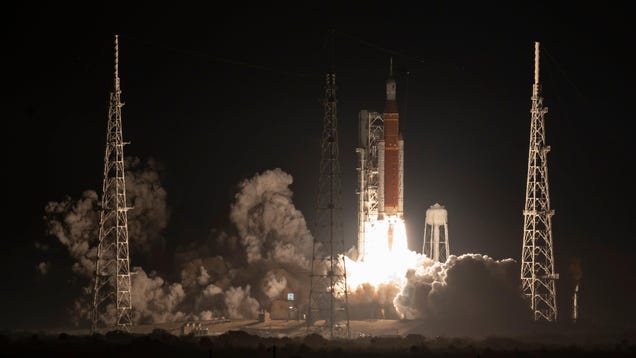The majority of the American public seems largely concerned with the threat of incoming asteroids, believing that NASA should prioritise the monitoring of rocky objects that could hit Earth over going to the Moon or Mars, according to a new survey.
A new survey by the Pew Research Center gauged people’s views of space exploration and their attitude towards NASA, private space companies, and the role of the U.S. as a leader in space. Although the majority of the people surveyed thought it was important for the U.S. to maintain its global leadership role in space exploration, very few actually support NASA’s endeavours to return to the Moon, send astronauts to Mars, or continue to conduct scientific research.
More than 10,000 people were surveyed on what NASA should focus on, with 60 per cent of them favouring monitoring asteroids and other objects that could potentially hit the Earth as the space agency’s top priority. In September 2022, NASA successfully redirected an asteroid as part of a planetary defence test known as the DART mission. The space agency also keeps a close watch on 28,000 near-Earth objects, but seeing as how there are no known threats to Earth within the next 100 years, planetary defence doesn’t appear to be on the top of NASA’s priorities list.
Instead, NASA is currently focused on its Artemis program to send astronauts to the Moon and future plans to land humans on Mars for the first time. In its 2024 budget request, NASA allocated $US8.1 billion from the $US27.2 billion budget request towards the Artemis program, a slight bump from last year’s $US7.5 billion. NASA also wants to further develop its Moon to Mars program, a proposed idea to use the Moon as a testbed to eventually land humans on Mars.
NASA also prioritized Mars Sample Return as part of the 2024 budget, requesting $US949 million to launch samples from the surface of the Red Planet to Earth. The ambitious plan is currently under scrutiny from the Senate over concerns that it has already gone over budget and will likely not launch within its initial timeline in 2028. Instead, a new spending bill suggests giving just $US300 million towards Mars Sample Return, with the Senate threatening to cancel it altogether if NASA doesn’t provide a year-by-year funding profile for the mission.
The U.S. public, however, does not seem to be in tune with NASA’s priorities. Only 12 per cent of those surveyed believe that sending astronauts to the Moon should be a priority for NASA while 11 per cent said the same about sending astronauts to explore Mars.
The Pew Research Center conducted a similar survey in 2018, in which monitoring the Earth’s climate system ranked first as NASA’s top priority. Mars and the Moon still had the bottom two spots, although Mars had slightly outranked the Moon in 2018 with 18% favoring a mission to Mars as a priority over 13% wanting to see astronauts go to the Moon.
Still, the public’s general attitude towards NASA remains positive, with 65 per cent saying that the space agency has a critical role to play even as the role of private space companies continues to grow. Those surveyed also had a positive attitude towards private space companies, with 47 per cent agreeing that the companies are doing a mostly good job in contributing to space exploration.
The survey also found that more than half of the U.S. public expect space tourism to become routine within the next 50 years while 65% is not actually interested in personally taking part in it.
For more spaceflight in your life, follow us on Twitter and bookmark Gizmodo’s dedicated Spaceflight page.
